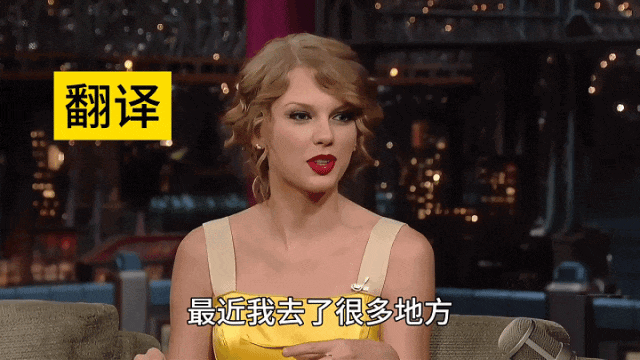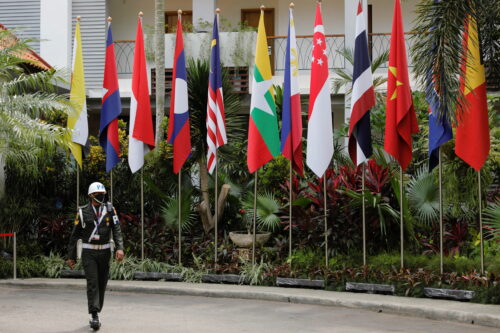AI-generated images captivate Chinese internet users
AI-powered apps and programs that can turn photos into colorful, illustrated portraits have taken Chinese social media by storm.

If you’ve spent any time scrolling through Chinese social media this past week, chances are you’ve stumbled upon an array of vibrant portraits. In the eyes of amateurs, the expertly crafted images might look like they were created by different artists, but they have actually been churned out by a variety of apps and programs powered by artificial intelligence.
In a recent trend that has taken the Chinese internet by storm, users of such image generators are turning themselves, their friends, and even their pets into digital avatars. Although the results are not always satisfactory, many fans of the viral software say that it’s the unpredictability that has them hooked.
The outputs are not necessarily sensible, but that’s part of the fun
Artificial intelligence systems that generate professional-looking images in response to simple text or visual prompts are not entirely new. Outside China, digital tools like DALL-E and Midjourney, for example, have gained traction in the past year for their ability to create everything from abstract art to realistic faces of fake people and vivid self-portraits in a matter of seconds. It even made award-winning art, angering artists and setting off fierce debate over the nature of art.
But in China, the technology didn’t trickle down to average internet users until late last month. On lifestyle and social media app Xiaohongshu, known as China’s answer to Instagram, the hashtag “AI drawing” #AI绘画# has nearly half a million posts as of Thursday. An AI portrait-generating feature on Douyin, the Chinese original version of TikTok, has been downloaded by more than 22 million users, with a related hashtag being viewed over 6 billion times.
On the all-encompassing Chinese messaging app WeChat, a slew of free mini-programs surged in popularity in the past few weeks. Yijian AI, a mini-program launched in September, saw a steady but modest increase in the number of users in its early days. But since November, thanks to a significant spike in interest, Yijian AI’s user base ballooned from hundreds of thousands to more than 10 million.
The surge of interest in AI art in general was mainly driven by Different Dimension Me, a portrait generator developed by Chinese internet giant Tencent. Launched in November, the app works by transforming user-uploaded photos into Japanese anime versions of illustrations. Although the renditions are always on point in terms of style, users were quick to notice that the app would frequently produce absurd results when the picture is complicated or when there are objects that the AI is unfamiliar with.

Turning human beings into animals seems to be one of the most regular mistakes made by the app. In one example, a Xiaohongshu user jokingly complained about the software misidentifying him as his dog’s canine friend. So far, his post has received about 48,000 likes and more than 12,000 responses, with most of them being humorous. “The adoptive father has become a biological father,” the top comment reads. Some more outrageous examples show users metamorphosed into random objects. One post on Xiaohongshu shows the creator being detected as a tombstone for wearing a long gray coat. “Today’s joy is brought by AI,” a person responded.

In late November, images produced by Different Dimension Me started spreading outside the Chinese internet, with Spanish-speaking users first jumping on the bandwagon. On Twitter, Weird Ai Generations (@weirddalle), an account dedicated to finding and posting the most bizarre AI-generated images, now routinely shares illustrations created by Different Dimension Me, including one that transforms Barack Obama into an anime character.

The next capital darling?
While AI-generated content (AIGC) has proven somewhat controversial amid fears that it will replace human workers, the technology has caused a frenzy among investors hoping to get in early on the next big thing. In October, Stability AI, the startup behind hyper-popular open-source music- and image-generating systems like Dance Diffusion and Stable Diffusion, raised $101 million in a funding round that valued the company at $1 billion. Founded in 2020, the London-based firm has been under scrutiny for letting users create objectionable content like graphic violence and pornography, but those concerns didn’t deter investors.

The enthusiasm surrounding AIGC can also be felt in the Chinese tech industry. According to Wind Information, a Shanghai-headquartered financial data provider, before November, the concept of AIGC was rarely mentioned in investor reports produced by listed Chinese companies. But in recent weeks, AIGC has become a buzzword that’s frequently brought up by Chinese investors and venture capital firms, with some of them even urging their portfolio companies to start AIGC-related businesses.
Some Chinese companies have already responded to the growing interest and received positive feedback. At the 2022 Global Metaverse Conference, which ran from November 10 to 11 in Shenzhen, Wondershare technology, a Chinese company known for its digital creative software, announced a blueprint for developing an AI art generator, which immediately resulted in a boost of its stock price. Visual China Group, the country’s largest stock photo and video provider, also saw its stock price surge for a few days in a row after announcing its commitment to developing AIGC-related services.






